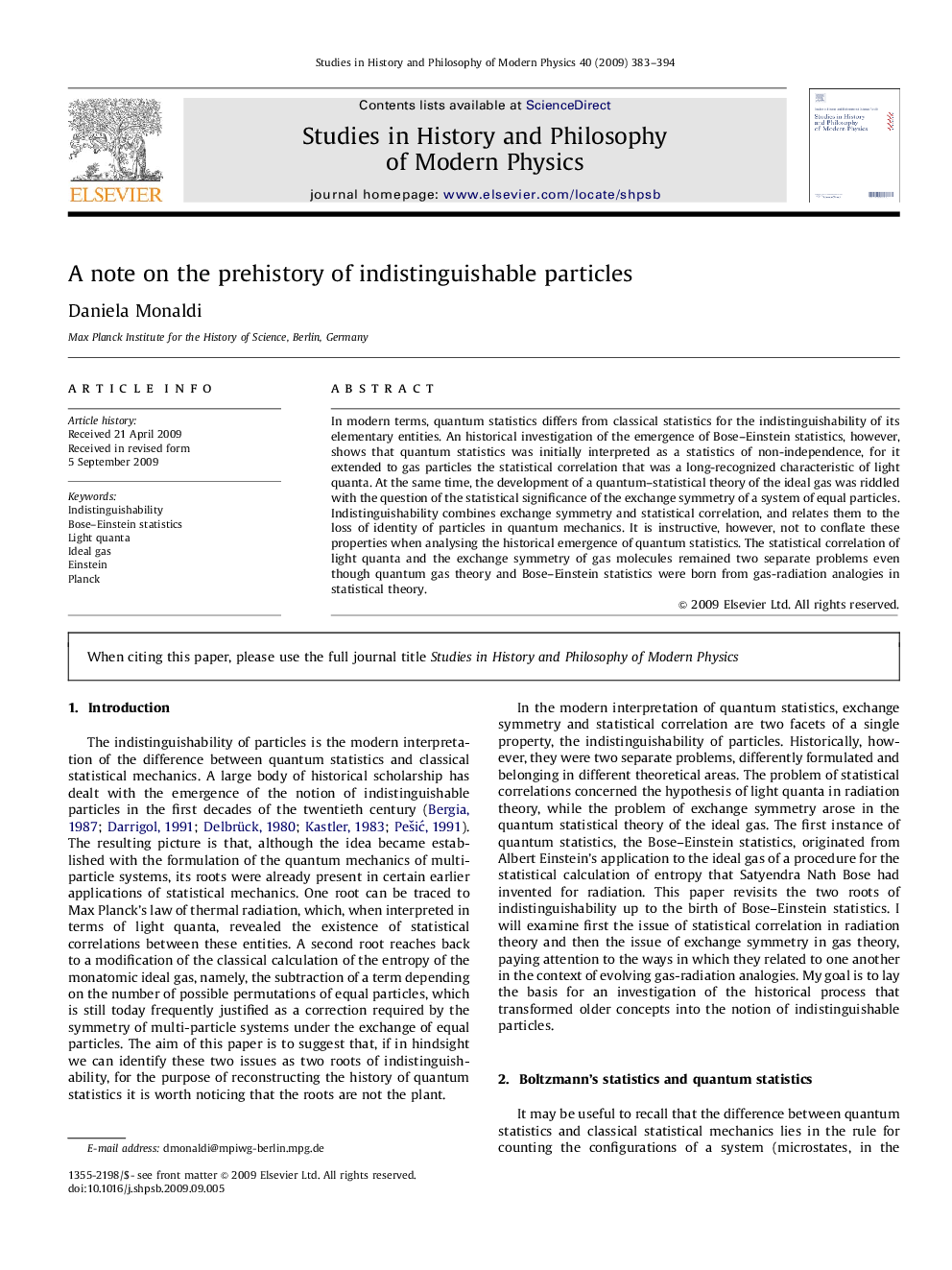| Article ID | Journal | Published Year | Pages | File Type |
|---|---|---|---|---|
| 1161713 | Studies in History and Philosophy of Science Part B: Studies in History and Philosophy of Modern Physics | 2009 | 12 Pages |
In modern terms, quantum statistics differs from classical statistics for the indistinguishability of its elementary entities. An historical investigation of the emergence of Bose–Einstein statistics, however, shows that quantum statistics was initially interpreted as a statistics of non-independence, for it extended to gas particles the statistical correlation that was a long-recognized characteristic of light quanta. At the same time, the development of a quantum–statistical theory of the ideal gas was riddled with the question of the statistical significance of the exchange symmetry of a system of equal particles. Indistinguishability combines exchange symmetry and statistical correlation, and relates them to the loss of identity of particles in quantum mechanics. It is instructive, however, not to conflate these properties when analysing the historical emergence of quantum statistics. The statistical correlation of light quanta and the exchange symmetry of gas molecules remained two separate problems even though quantum gas theory and Bose–Einstein statistics were born from gas-radiation analogies in statistical theory.
